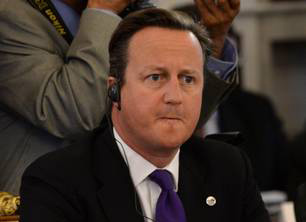The headline from the International Business Times was a moral panic classic: “UK Government Pays Sex Clubs To Employ Teenage Girls.” But it is a headline that is misleading and it misses the point. It conjures up sordid images of underage girls being plucked from schoolyards by evil government sex traffickers to work as prostitutes.
What has actually happened is that the Department of Work and Pensions (DWP) has paid cash incentives to a range of employers in the adult entertainment industry to hire unemployed people aged 18-24. Yes, if you are 18 you are a teenager – but you are also an adult in the eyes of the law and when you are an adult, you can work in for any legal employer in the adult entertainment industry. You may disapprove of the adult entertainment industry but if that’s the case, you can go and do something else for a living.
The DWP distributed a list of the employers that can benefit from at least £2,000 in incentives funded by UK taxpayers. Here is the list:
1. Those involved in the sale, manufacture, distribution and display of sex related products;
2. Auxiliary workers in lap/pole dancing clubs – e.g. bar staff, door staff, receptionists or cleaners;
3. Auxiliary workers in strip clubs – e.g. bar staff, door staff, receptionists or cleaners;
4. Auxiliary workers in saunas/massage parlours e.g. bar staff, door staff, receptionists or clearers;
5. Glamour model photographers;
6. Web-cam operators;
7. TV camera operators, sound technicians, producers/directors for adult channels on digital TV;
8. TV camera operators, sound technicians, producers/directors for pornographic films.
Like it or not, these are all perfectly legal ways to earn a living.
DWP rules stipulate that such employers can offer young jobseekers full-time work for up to 26 weeks as long as the jobseeker is not a performer nor performing sexual acts. Given the laws surrounding the legality of prostitution in the UK are rather muddy (and frankly ridiculous), this rule seems fair enough.
But it’s not the morality of working in the adult entertainment industry that is the real problem here. The problem is that the UK government is turning the employers into welfare recipients in a scheme that doesn’t do a damn thing to create long-term jobs. It doesn’t matter if it’s Sainsburys or Spearmint Rhino – this policy is stupid.
There is nothing to stop any employer from simply hiring someone for 26 weeks, getting rid of them and then hiring someone else for another 26 weeks to do the same job. This is not real, long-term job creation. This is simply a way for employers to hire staff at the expense of the taxpayer. Sure, the experience might lead to another job, or it might lead to another 26 weeks of temporary work elsewhere or it might lead to nowhere but long-term uncertainty. If any employer has work that needs to be done, they should hire staff and pay a living wage. This way, people have some financial security, they are less likely to be dependent on benefits, they pay tax and they are economically active consumers.
Similarly, if people are forced to do any job under the threat of losing unemployment benefits, whether it’s in the adult entertainment industry or not, that is problematic. This harks back to the case last year of Cait Reilly, the graduate who had to forego work experience in a museum to work in Poundland or face losing fairly meagre unemployment payments. The museum experience would have helped her get a better-paid job relevant to her degree. Instead, she has ended up working in a Morrisons supermarket.
There is nothing wrong with working in a supermarket but there is plenty wrong with a system that is focused on number-crunching. This is all about forcing people in any job at taxpayer expense to make the unemployment figures look more attractive in time for the 2015 election. There is nothing in this policy that focuses on creating real jobs across a range of industries, looking at the individual situations of unemployed people on a case-by-case basis, or regional development so that jobs are not just created in expensive, crowded London. But none of that makes for a good headline.
In short, the pearl-clutching article from the International Business Times is simply another excuse to slag off the adult entertainment industry.
[Article originally published on Georgia’s blog, The Rant Mistress]

